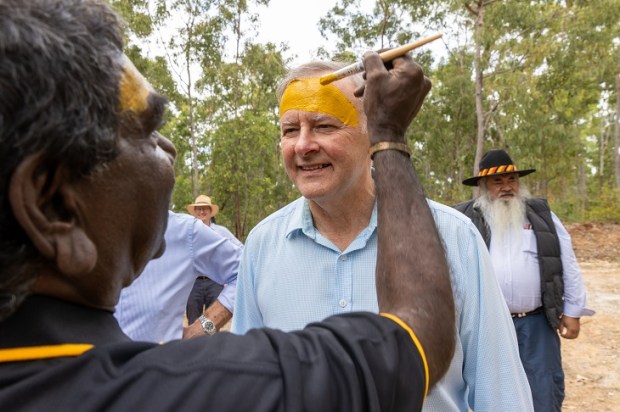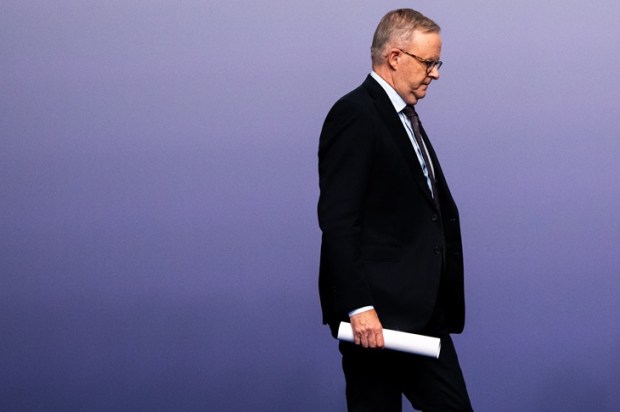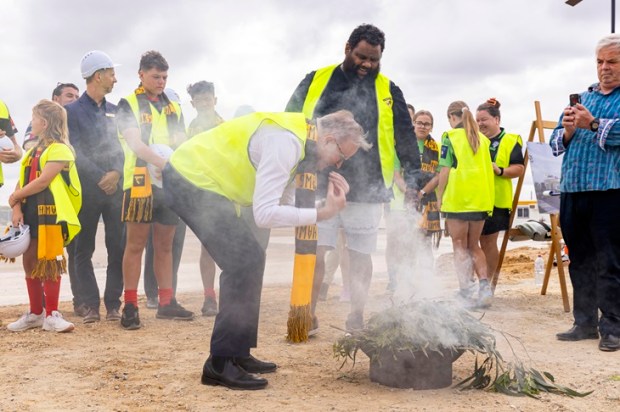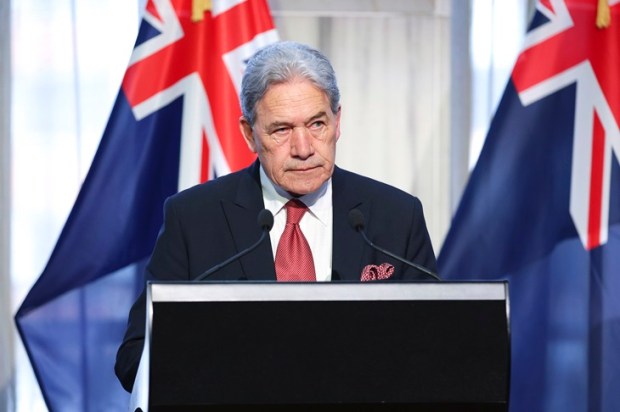There is one thing you can always be sure of, the ‘thinkers’ in and behind the Liberal Party never ever consider the interests, values, and aspirations of voters. It is always about them.
Hell, we just lost government. What do we do to get it back?
How can a party regain government when it fundamentally misunderstands why elections are lost?
The party ‘thinkers’ delude themselves. There must be something in the Liberal Party’s DNA that blocks the necessary deep introspection required after defeat and prevents them from considering how far they have drifted from founding conservative values. Today, the Liberals are not even a facsimile of the Menzies dream.
Simon Sinek, one of the marketing world’s better thinkers, says that great leaders always start with ‘why’:
‘Start With Why’ is how you explain your purpose and the reason you exist and behave as you do. Sinek’s theory is that successfully communicating the passion behind the ‘Why’ is a way to communicate with the listener’s limbic brain (emphasis in original).
It is a long time since the Liberal Party knew the ‘why’ of its existence, or bothered to go looking for it. Today, the Liberal Party is led by the Millennial cadre that never asks why.
Their most recent catastrophe – and I refer to their period in office in Macquarie Street from 2011-23 and its 12 wasted years – is a perfect demonstration of this.
Aaron Patrick in the Australian Financial Review weighs in:
The last mainland Liberal government was built on the relationship between two men; a friendship, alliance, and intellectual collaboration that the party’s elders believed had unlocked the elusive formula of Coalition rule.
Premier Dominic Perrottet, so provocatively conservative he wore an SS uniform to his 21st, and treasurer Matt Kean, who couldn’t hide his pleasure when visitors cooed at a JFK election poster on his office wall, were partners in a left-right collaboration they believed – and were largely proven correct – would stave off an inner-city teal takeover and protect suburban and country seats from the far right.
Setting aside Patrick’s propositions that Perrottet is a conservative and that wearing an SS uniform has anything to do with conservatism, some of his other observations are revealing. Perrottet’s serial political ‘bromances’ with leftists within the party are well-known.
His patience for Matt Kean is as striking as its reciprocation, although it likely has little to do with shared core values and more to do with a desire to retain seats. This is about as cynical as politics get.
Michael Koziol of the Sydney Morning Herald recently sought out a prominent power broker to consult for a deep dive into the NSW election:
… One Nation’s share of first preferences in the lower house – 1.8 per cent – was ‘almost a flop’, and it was electorally silly to pursue that voter base.
‘I’d rather chase the 60 per cent plus we didn’t get than the 2 per cent we can’t get,’ he said. ‘It’s simply dumb and dumber to think going hard right will magically transform today’s landscape.’
‘Chase the 60 per cent?’ What does that even mean? Chase? Give every last interest group what it wants? Be leftist-progressive, so as to win the hearts and minds of the Davos set who will never vote for your lot? I don’t think so. The Liberals are merely channelling their inner Mark Textor. (Textor was a Liberal Party pollster of yore.)
Four things stand out from this analysis.
First, it provides compelling insight that those plotting the future of the Liberal Party see redemption only in regaining government as soon as possible.
Second, political ideals are swiftly being reduced to cliches. Centrist? Modern? Dumb and dumber?
Third, the belief persists that elections can be won by ‘governing from the centre’ – the same pursuit that has all-but wiped out the Liberals in Victoria and Western Australia.
Fourth, and almost unbelievably, the full commentary encourages the ‘special powers’ of pre-selections as being preferable to internal party democracy. It is a nod to the formidable backroom.
It is interesting that the analysis criticises One Nation’s 1.8 per cent of the primary vote, but ignores that One Nation only stood candidates in around 20 seats out of the total 93 seats in the Lower House. In the Upper House, with a single, statewide electorate, One Nation scored 5.76 per cent. It should also be noted how the The Shooters (3.06 per cent), the Liberal Democrats (3.36 per cent), and the Informed Medical Options Party (0.73 per cent) performed to get a fuller picture of the extent of the Liberals’ right-of-centre ‘targets’. That is, close to 13 per cent or over half a million voters.
For anyone to say that the Liberals in Canberra are ‘far right’ is ludicrous. They are just as mired in delusion as all of their other divisions across the now almost totally red nation. (The Voice notwithstanding. Opposing the Voice is not technically right or left-wing. Merely sensible. Centrist, even. See under Graham Richardson.)
The Sydney Morning Herald’s interview concluded:
He described the Coalition’s election loss after 12 years in power as ‘honourable and narrow’.
Honourable and narrow. The ALP did not get a majority government, but in my view its victory was anything but narrow in relation to the defeated Coalition. To describe the loss as honourable defies reality. The Liberals and Nationals were booted out. A dustbin of history-level defeat. Their showing was lamentable.
No doubt, there will be a ‘review’ of the Liberals’ election loss, and, no doubt, Party worthies from the past will be engaged in the exercise. If past efforts are anything to go by, the hard issues will be ignored. They will ask the wrong question, as they always do. They will ask why they lost the election. They will not ask, never ask, why they governed so poorly. Or what they need to do to win back the trust of the 70 per cent of voters in the Upper House and the 64 per cent in the Lower House who didn’t vote for them. The good thing is that they are likely to have plenty of time to think about it.
Who writes the terms of reference for ‘the review’, will be critical, as always. We can be sure that the former government’s adherence to liberal and conservative principles won’t be at or near the top of the list. As Bernard of Yes Minister suggested, there will be ‘guidelines’. Once these are set, well, ‘that’s the way they will go’.
It is almost inevitable that they won’t start with ‘why’. Simon Sinek would not be amused. Nor will the voters of New South Wales be, in any way, assured that things will be any better next time. To say that the Liberals of Macquarie Street have their heads in the sand is merely a euphemism.

























